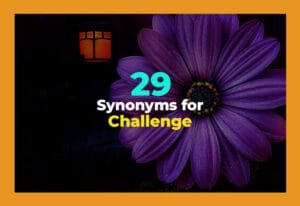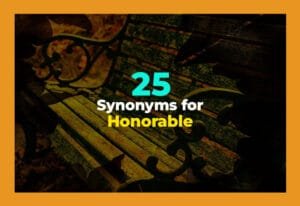Sometimes life can get a bit sour, sharp, or even harsh—kind of like how "unlike" shows differences between things. It's fun to find new ways to say the same idea, right? Today, we'll explore 28 easy and fresh synonyms for unlike with simple examples. This way, you can spice up your writing or chats without sounding bitter or dull!
1. Different from
"Different from" is a very common way to say something is not the same as something else. It's simple and clear. For example, "Apples are different from oranges," and "Her style is different from mine." We use this phrase when we want to show a clear difference between two things or people. It's a friendly way to explain how things are not alike in a gentle, easy way.
2. Not like
"Not like" is a casual phrase to show something doesn't match or isn't similar. For example, "This phone is not like the old one," and "He is not like his brother." It's very easy to use and understand, especially in everyday talk. When you say "not like," you're simply saying two things aren't the same or don't act the same way.
3. Dissimilar to
"Dissimilar to" is a little more formal but still easy to understand. It means two things don't share the same qualities. For example, "The twins are dissimilar to each other," and "Her ideas are dissimilar to mine." This phrase works well when you want to sound clear and polite while explaining that things are not alike.
4. Distinct from
"Distinct from" means very clearly different or separate. It points out a strong difference between two things. For example, "His opinion is distinct from hers," and "This brand is distinct from others." It helps you say the difference is obvious or important. Use this when you want to be clear that things are not only different but also easily noticed as such.
5. Contrary to
"Contrary to" means opposite or very different in meaning or nature. For example, "Contrary to popular belief, cats like water," and "Her actions were contrary to her words." This phrase shows things that don't agree or match at all. It's great for pointing out contrasts or opposing ideas in a polite way.
6. Diverse from
"Diverse from" means showing a variety or being unlike others in type or nature. For example, "The cultures are diverse from one another," and "His interests are diverse from his friends." It's a nice way to say things are different but also colorful or interesting. This phrase works well when differences add value or variety.
7. Opposite to
"Opposite to" means completely different or facing away from something. For example, "His views are opposite to mine," and "The shop is opposite to the park." It shows things that are not just different but often completely reversed. Use this phrase when you want to highlight strong differences or directions.
8. Unlike to
"Unlike to" is less common but can be used in some sentences to show difference. For example, "Unlike to other cities, this one is very quiet." It's mostly used in formal writing or older styles. When you want a unique way to say something is not the same as others, you can try this phrase carefully.
9. Varying from
"Varying from" means changing or different across a range or set. For example, "Prices are varying from store to store," and "Opinions are varying from person to person." It helps show a range of differences, not just one fixed difference. Use this when you want to talk about many differences in a group or situation.
10. Unalike
"Unalike" is a simple, direct word meaning not alike or different. For example, "Their tastes are unalike," and "The twins look unalike." It's less common but very easy to understand. Use "unalike" when you want a short and clear way to say two things don't match or aren't similar.
11. Not similar to
"Not similar to" means two things don't share common features. For example, "His painting is not similar to hers," and "This recipe is not similar to the traditional one." It's clear and simple. You can use it to explain that things don't look, feel, or act alike in an easy, straightforward way.
12. Unmatched by
"Unmatched by" means something is not equaled or paired by something else. For example, "Her skills are unmatched by anyone else," and "The beauty of this place is unmatched by others." This phrase often shows something special or unique because it is unlike others in quality or style.
13. Uncommon to
"Uncommon to" means not usual or often seen with something. For example, "Rain in summer is uncommon to this area," and "His way of thinking is uncommon to most people." It points out differences by showing that something is rare or unusual compared to others.
14. Not the same as
"Not the same as" is a very easy phrase to show difference. For example, "This jacket is not the same as yours," and "Her story is not the same as what I heard." It's perfect for everyday talk when you want to say two things don't match or aren't equal.
15. Unlike in nature
"Unlike in nature" means two things are naturally or basically different. For example, "Cats and dogs are unlike in nature," and "Their personalities are unlike in nature." It points out deep or natural differences, not just small or surface ones. Use this when you want to say the difference is part of what something is.
16. Separate from
"Separate from" means kept apart or not joined. For example, "This problem is separate from the others," and "She lives in a house separate from her family." It shows physical or mental differences by pointing out that things are apart or independent.
17. Unrelated to
"Unrelated to" means having no connection or link. For example, "The news is unrelated to the event," and "His comment was unrelated to the topic." This phrase clearly shows things are different because they don't connect or share anything.
18. Not equal to
"Not equal to" means not the same in value, amount, or size. For example, "Her effort was not equal to his," and "The two prices are not equal to each other." Use this when you want to show that things differ in size, power, or importance.
19. In contrast to
"In contrast to" means showing a clear difference when compared. For example, "In contrast to his brother, he is very quiet," and "The bright color is in contrast to the dark walls." It's great for pointing out differences that stand out clearly.
20. Contrasting with
"Contrasting with" means showing a difference that can be seen or felt. For example, "Her calm voice is contrasting with his loud one," and "The soft fabric is contrasting with the rough texture." Use it to show a clear, noticeable difference between two things.
21. At odds with
"At odds with" means being in disagreement or conflict. For example, "His ideas are at odds with hers," and "The facts are at odds with the story." It shows differences that cause tension or arguments. Use it when things don't match and cause problems.
22. Incompatible with
"Incompatible with" means two things cannot work or exist well together. For example, "This software is incompatible with my computer," and "Their personalities are incompatible with each other." It points out strong differences that stop things from fitting or working well.
23. Different in kind
"Different in kind" means different in type or nature. For example, "Fruits and vegetables are different in kind," and "His problems are different in kind from mine." Use this when you want to say the difference is basic and important, not just small or easy.
24. Divergent from
"Divergent from" means moving or thinking in different directions. For example, "Their opinions are divergent from the group," and "The two paths are divergent from each other." It shows differences that grow or spread apart over time or ideas.
25. Off from
"Off from" means away or separated from something. For example, "The village is off from the main road," and "Her answer was off from what I expected." It shows differences by pointing out distance or change from a normal or expected place.
26. Not resembling
"Not resembling" means not looking or acting like something else. For example, "This painting is not resembling the original," and "His voice is not resembling his father's." Use it to show a difference in appearance or behavior clearly.
27. Disparate from
"Disparate from" means very different and not able to be compared easily. For example, "Their ideas are disparate from each other," and "The two cultures are disparate from one another." It points out strong, often surprising differences.
28. Not corresponding to
"Not corresponding to" means not matching or agreeing with something else. For example, "The data is not corresponding to the report," and "His story is not corresponding to the facts." Use this when you want to show things don't line up or fit together properly.
Final Thoughts
Learning different ways to say "unlike" helps make your speaking and writing more fun and clear. Each synonym here shows a special way to talk about differences, from simple ones like "not like" to stronger ones like "at odds with." Using these words can help you explain ideas better and sound more natural in conversations. Try them out to add variety and interest to your language every day.

| Synonym | Meaning | Example |
|---|---|---|
| Different from | Not the same as | Apples are different from oranges. |
| Not like | Not similar or the same as | This phone is not like the old one. |
| Dissimilar to | Not sharing the same qualities | The twins are dissimilar to each other. |
| Distinct from | Clearly different or separate | His opinion is distinct from hers. |
| Contrary to | Opposite or very different | Contrary to belief, cats like water. |
| Diverse from | Showing variety or being unlike | The cultures are diverse from one another. |
| Opposite to | Completely different or reversed | His views are opposite to mine. |
| Unlike to | Not the same as (formal/older use) | Unlike to other cities, this one is quiet. |
| Varying from | Changing or different across a range | Prices are varying from store to store. |
| Unalike | Not alike or different | Their tastes are unalike. |
| Not similar to | Not sharing common features | His painting is not similar to hers. |
| Unmatched by | Not equaled or paired by another | Her skills are unmatched by anyone else. |
| Uncommon to | Not usual or often seen with | Rain in summer is uncommon to this area. |
| Not the same as | Not equal or matching | This jacket is not the same as yours. |
| Unlike in nature | Naturally or basically different | Cats and dogs are unlike in nature. |
| Separate from | Kept apart or not joined | She lives in a house separate from her family. |
| Unrelated to | Having no connection or link | The news is unrelated to the event. |
| Not equal to | Not the same in value or size | The two prices are not equal to each other. |
| In contrast to | Showing a clear difference | In contrast to his brother, he is quiet. |
| Contrasting with | Showing a visible or felt difference | The soft fabric is contrasting with rough. |
| At odds with | In disagreement or conflict | His ideas are at odds with hers. |
| Incompatible with | Cannot work or exist well together | This software is incompatible with my computer. |
| Different in kind | Different in type or nature | Fruits and vegetables are different in kind. |
| Divergent from | Moving or thinking in different ways | Their opinions are divergent from the group. |
| Off from | Away or separated from something | The village is off from the main road. |
| Not resembling | Not looking or acting like another | His voice is not resembling his father's. |
| Disparate from | Very different and hard to compare | Their ideas are disparate from each other. |
| Not corresponding to | Not matching or agreeing | His story is not corresponding to the facts. |









